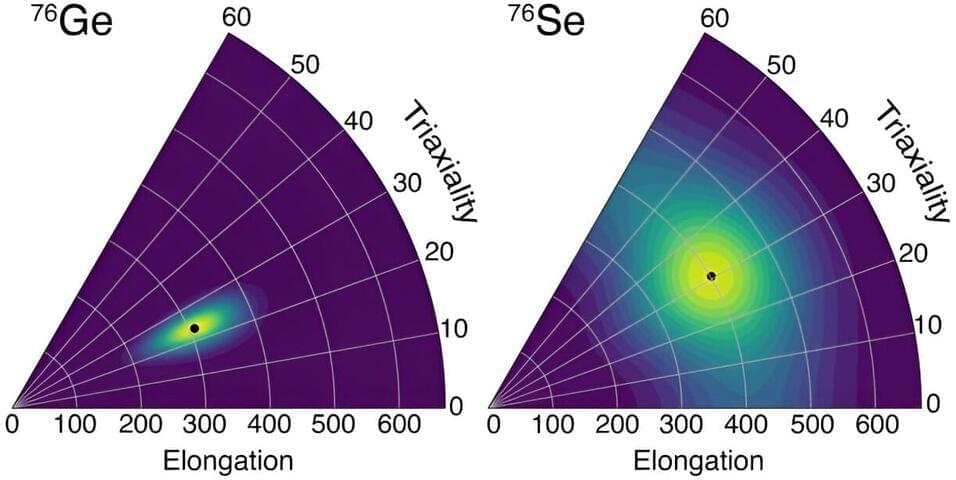The discovery that neutrinos have mass was groundbreaking. However, their absolute mass remains unknown. Neutrinoless double beta decay experiments aim to determine whether neutrinos are their own antiparticles and, if so, provide a means to determine the mass of the neutrino species involved.
Determining the mass through neutrinoless double beta decay experiments using 76 Ge is only possible if scientists understand the properties of the decay of 76 Ge into selenium-76 (76 Se). A study published in Physical Review C provides key input for these kinds of experiments.
Germanium-based neutrinoless double beta decay (0νββ) experiments hold great promise for unraveling the mysteries surrounding neutrinos. The observation of this rare decay process not only offers the prospect of determining the nature of these enigmatic particles, but also the determination of their mass, provided the probability governing the decay is reliably known.










Comments are closed.